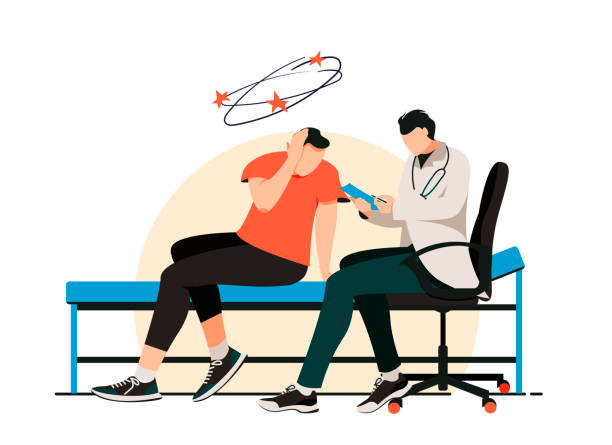
Its not a disease but a feeling patient develops as a result of a disease
We need to treat the disease not the vertigo feeling
No, vertigo is a spinning sensation of the surrounding or self
Giddiness is feeling of light headedness, floating feeling
Balance problems is were person has difficulty in sitting, standing or walking
Changing color of vision and black out is another similar complaint
If vertigo is occuring while sudden movements or turning of head
it is likely to be Benign paroxsmal positional vertigo (BPPV)
if vertigo is associated with hearing loss or ringing of one ear
its likely to be a disease of inner ear- menieres, labrynthitis etc
if vertigo is severe even on resting still without moving in bed
need to go to emergency medicine to rule out neurological cause
it is being referred to BPPV, which is the commonest cause of vertigo
BPPV causes vertigo by movement of very small stones in semicircular tubes in innner ear
There are 3 such tubes on each ear, so 6 in total
To test which tube is affectecd person is made in make sudden movements of head
by sitting to lying postion and back or sidewards movement
Once the tube has been identified the head is held by doctor and moved so that the stones move out of tubes
Once the stone is in a safe place the spinning sensation will disappear
This is known as Canololith Repositioning Manoeuvre(CRM)
Epleys, barbeque , deep head hanging, semonts are CRM
Dix Halpike is the test for positional vertigo
Imbalance mostly needs rehalibitation
Medical management of cause
Vestibular rehabilitation done in stages
Not much except in refractory cases
injections in ear are helpful for selected cases
Diagnosis usually does not need CT or MRI
Diagnosis is usually clinical with audilogy in most peripheral vertigo
MRI is preferred in case suspecting neurological causes
videonystgamography is useful in rare cases and if testing done by assistants